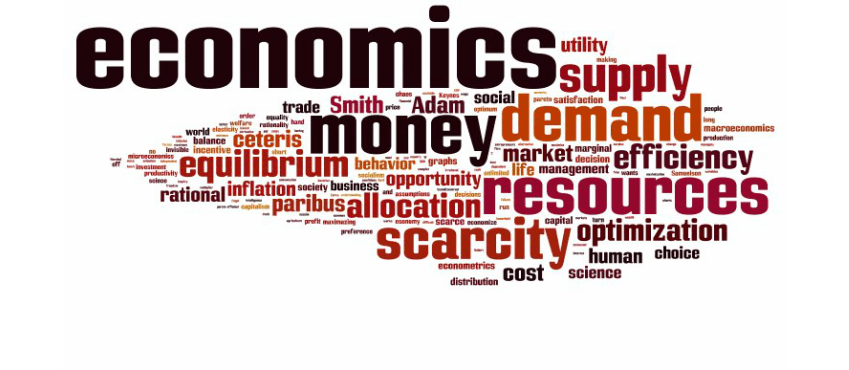Explore the World's Best Ideas
Join today and uncover 100+ curated journeys from 50+ topics. Unlock access to our mobile app with extensive features.
Self-interest
The desire of bettering our condition comes with us from the womb and never leaves till we go into the grave (Adam Smith). No one spends someone else’s money as carefully as he spends his own.
8
38 reads
Economic growth
The key to a higher standard of living is to expand savings, capital formation, education, and technology.
8
34 reads
Trade
In all voluntary exchanges, where accurate information is known, both the buyer and seller gain; therefore, an increase in trade between individuals, groups, or nations benefits both parties.
8
28 reads
Competition
Given the universal existence of limited resources and unlimited wants, competition exists in all societies and cannot be abolished by government edict.
7
26 reads
Cooperation
Since most individuals are not self-sufficient, and almost all natural resources must be transformed in order to become usable, individuals—laborers, landlords, capitalists, and entrepreneurs—must work together to produce valuable goods and services.
7
22 reads
Division of labor and comparative advantage
Differences in talents, intelligence, knowledge, and property lead to specialization and comparative advantage by each individual, firm, and nation.
8
21 reads
Dispersion of knowledge
Information about market behavior is so diverse and ubiquitous that it cannot be captured and calculated by a central authority.
7
26 reads
Profit and loss
Profit and loss are the market mechanisms that guide what should and should not be produced over the long run.
7
24 reads
Opportunity cost
Given the limitations of time and resources, there are always trade-offs in life. If you want to do something, you must give up other things you may wish to do. The price you pay to engage in one activity is equal to the cost of other activities you have forgone.
9
22 reads
Price theory
Prices are determined by the subjective valuations of buyers (demand) and sellers (supply), not by any objective cost of production; the higher the price, the smaller the quantity purchasers will be willing to buy and the larger the quantity sellers will be willing to offer for sale.
8
20 reads
Causality
For every cause there is an effect. Actions taken by individuals, firms, and governments have an impact on other actors in the economy that may be predictable, although the level of predictability depends on the complexity of the actions involved.
8
20 reads
Uncertainty
There is always a degree of risk and uncertainty about the future because people are often reevaluating, learning from their mistakes, and changing their minds, thus making it difficult to predict their behavior in the future.
7
17 reads
Higher wages
Higher wages can only be achieved in the long run by greater productivity, i.e., applying more capital investment per worker; chronic unemployment is caused by government fixing wage rates above equilibrium market levels.
7
17 reads
Government controls
Price-rent-wage controls may benefit some individuals and groups, but not society as a whole; ultimately, they create shortages, black markets, and a deterioration of quality and services. There is no such thing as a free lunch.
8
13 reads
Money
Deliberate attempts to depreciate the nation’s currency, artificially lower interest rates, and engage in easy money policies inevitably lead to inflation, boom-bust cycles, and economic crisis. The market, not the state, should determine money and credit.
7
19 reads
Public finance
In all public enterprises, in order to maintain a high degree of efficiency and good management, market principles should be adopted whenever possible: (1) Government should try to do only what private enterprise cannot do; government should not engage in businesses that private enterprise can do better; (2) government should live within its means; (3) cost-benefit analysis: marginal benefits should exceed marginal costs; and (4) the accountability principle: those who benefit from a service should pay for the service.
8
15 reads
IDEAS CURATED BY
CURATOR'S NOTE
What makes it [economics] most fascinating is that its fundamental principles are so simple that they can be written on one page, that anyone can understand them, and yet very few do. — Milton Friedman
“
Claudiu Florea's ideas are part of this journey:
Learn more about economics with this collection
How to prioritize tasks effectively
How to manage your time efficiently
How to reduce stress and anxiety
Related collections
Similar ideas
Read & Learn
20x Faster
without
deepstash
with
deepstash
with
deepstash
Personalized microlearning
—
100+ Learning Journeys
—
Access to 200,000+ ideas
—
Access to the mobile app
—
Unlimited idea saving
—
—
Unlimited history
—
—
Unlimited listening to ideas
—
—
Downloading & offline access
—
—
Supercharge your mind with one idea per day
Enter your email and spend 1 minute every day to learn something new.
I agree to receive email updates

